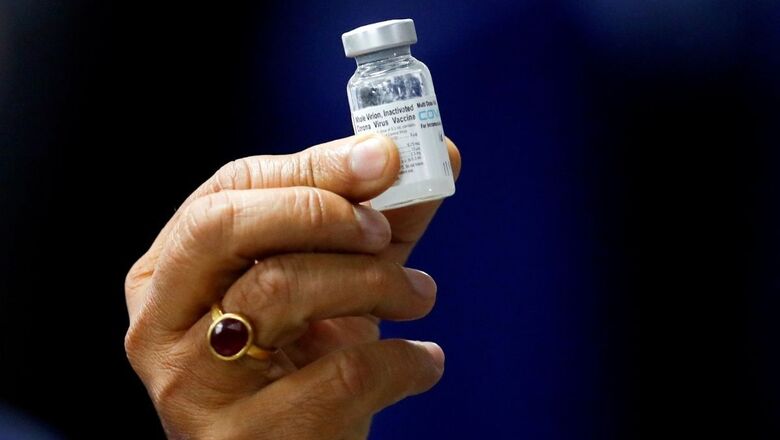
views
The recent government announcement to engage the private sector in the Covid-19 vaccination drive is not surprising as some prominent industry leaders had already appealed for such collaborations. The details of the roll-out plan are emerging, but it seems the government would procure the vaccines and distribute them to some 20,000 private hospitals empanelled under PMJAY (Pradhan Mantri Jan Arogya Yojana) along with public hospitals. Private hospitals would be allowed to charge some fee.
It seems to be a compelling logic that conducting the biggest-ever vaccination drive in human history needs collective efforts on all fronts and if it is only left to the government it would take a longer time. It is important, however, that some key questions and apprehensions are raised at this juncture, keeping in mind the realities of the private healthcare delivery in India. Desperate times need extraordinary caution.
Need for regulation
The first and foremost challenge would be to identify the vulnerable groups. Developed countries like the UK or Israel, who are progressing rapidly with the vaccination drive for the elderly population and vulnerable sections, have better electronic health records and thus, with preparations, could identify these sections. In India, many would not even have proper birth certificate or other age proof to start with. Many among the poor and vulnerable sections of the society in India do not get diagnosed with chronic conditions like diabetes or cardio-vascular diseases, unless some acute events occur. A large part of those would be left out in this process.
Charging a price for vaccination would create additional barriers for the poorer sections. If, for instance, an average dose of vaccine costs Rs 1000 per person, a family with five adults would need Rs 10,000 for getting two doses. For nine out of 10 families in India, this means more than half of their household consumption budget in a month. This would be unaffordable for many vulnerable sections that would either opt out or get pushed into poverty. This error of wrong exclusion would render the entire vaccination process ineffective.
ALSO READ| Should Private Players be Involved in India’s Vaccination Drive?
At the same time, those who could afford to pay would not mind paying an extra amount above the stipulated price. This is very likely to lead to over-charging as well as error of wrong inclusion—people who are not vulnerable may get the jabs paying the extra buck. The experience with various tax-funded health insurance schemes like the PMJAY suggests that charging patients for services, which are supposed to be provided free or at a subsidized rate by the government, is a common practice in the private sector.
The Indian private sector has been subjected to very little regulation and compliance historically. Its service delivery mix and practices are largely oriented towards cherry picking and profit, with very little role in public health programmes. Routine vaccination has been largely in the domain of public sector, with private players having some role among better-off sections in large cities but not beyond. Whether there is enough competence, infrastructure and willingness to forego its almost compulsive urge to induce demand in times of emergency, to be able to complement government sector effectively in this massive drive, needs to be assessed carefully. The Covid-19 experience suggests otherwise.
Call for global efforts
We need to ensure that vaccines are made available to an overwhelming majority of people for free in order to overcome the issues of inequality and exclusion. However, much of the supply side issues cannot be solved at the local level alone—it calls for global actions. Relatively better-placed countries like India cannot afford to pay for the entire cost, let alone other developing countries.
The global cost of not vaccinating everyone would be many times more than the cost of vaccination. If OECD (Organisation for Economic Co-operation and Development) countries give up their urge to procure two-three times more than their requirement and rather contribute around $27.2 billion—the current funding shortage—this will pay fully for the entire cost of WHO’s ACT Accelerator programme and its vaccine pillar COVAX. This would be enough to vaccinate the entire developing world.
In these desperate times, solidarity could be the real vaccine that can free us from narrow self-interest and urge for immediate profit and thus freedom from the pandemic. Are we ready for such extraordinary efforts? Scientists have already shown us the way. Would politicians and industry follow suit?
Read all the Latest News, Breaking News and Coronavirus News here


















Comments
0 comment